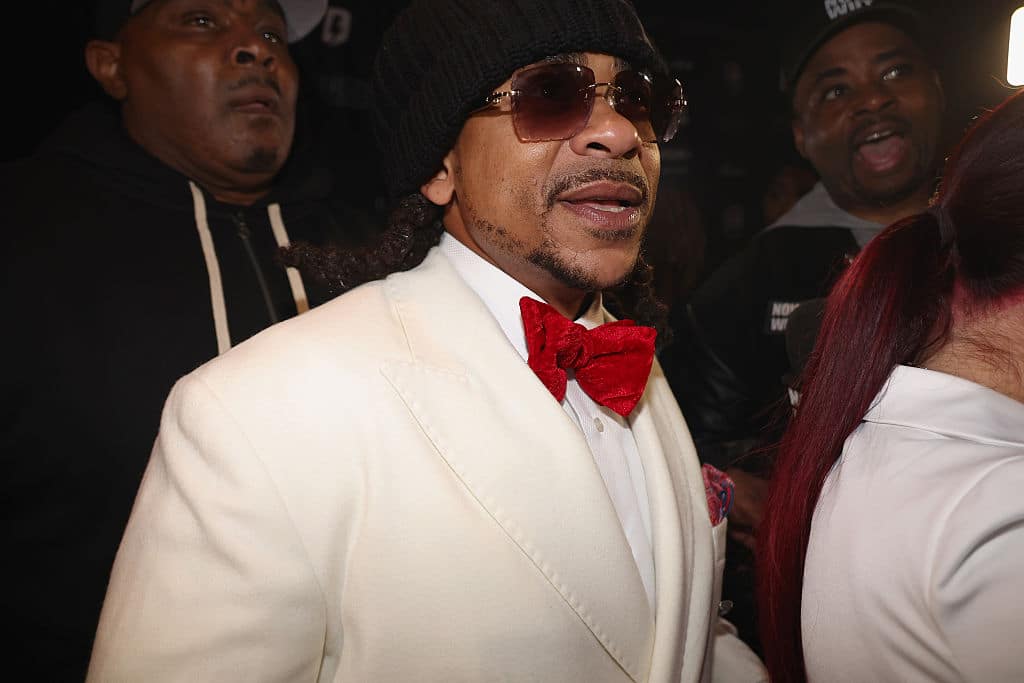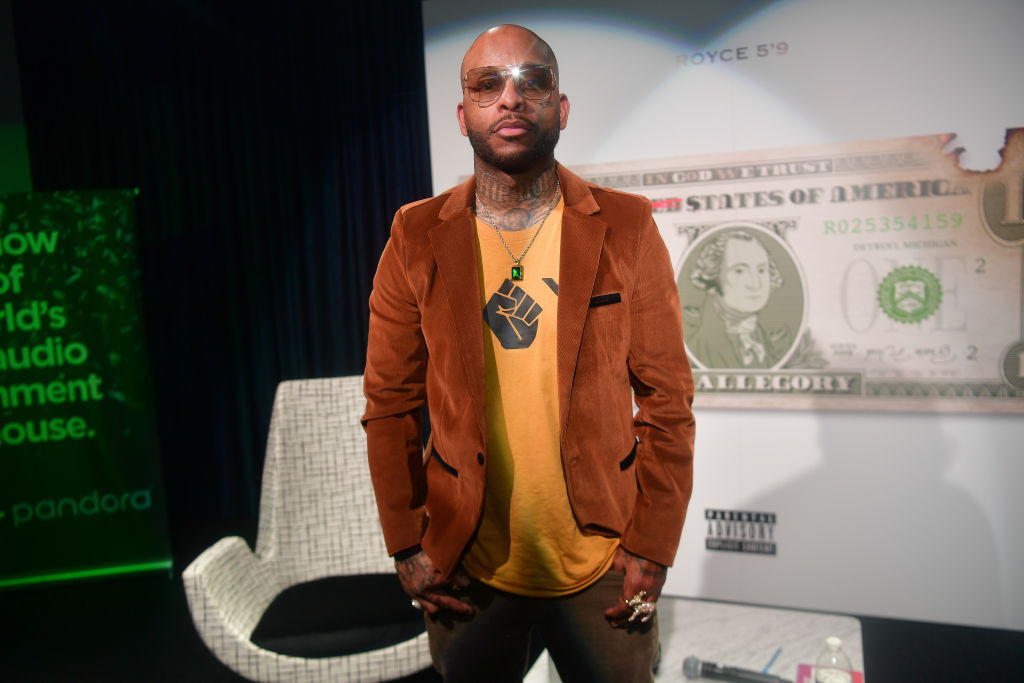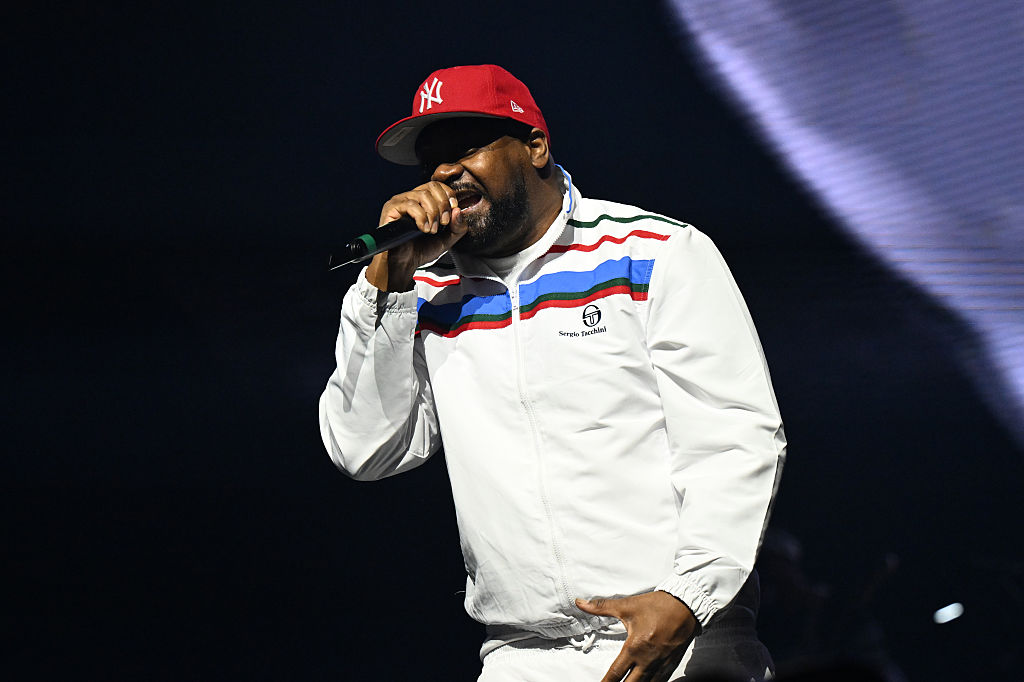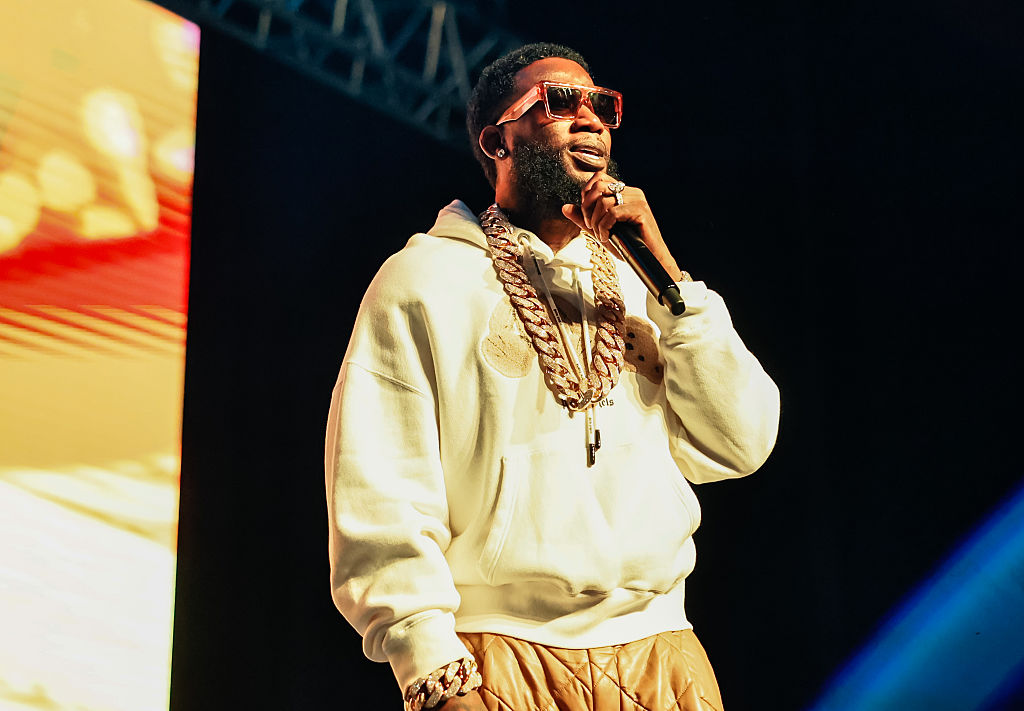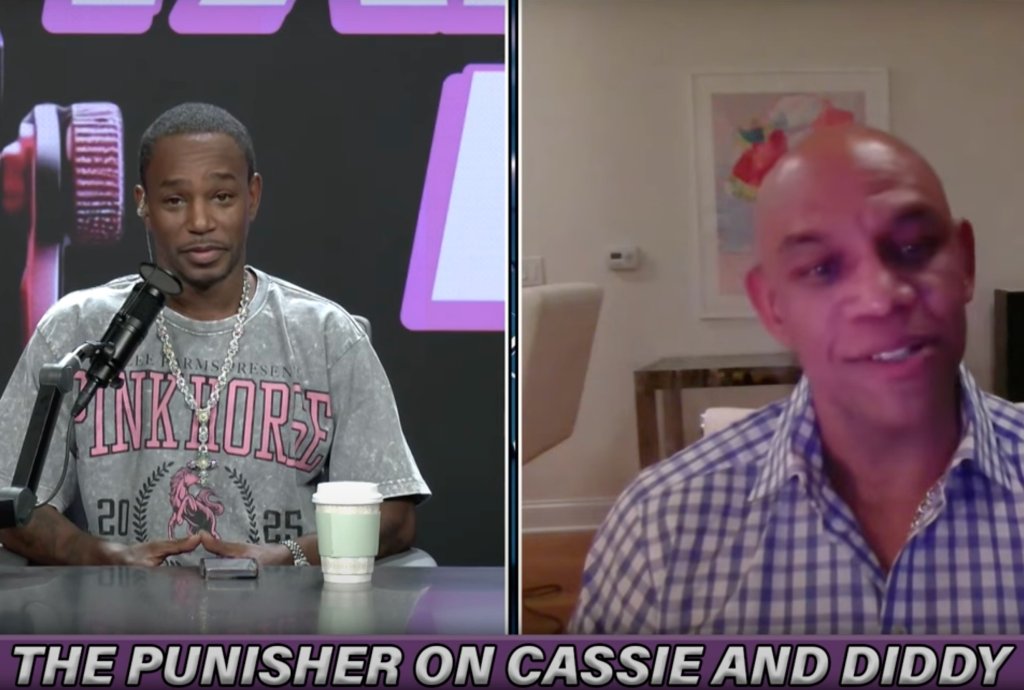Interview
Trending on Billboard
Ricardo Montaner trains as if he were preparing to run a marathon. In February, the iconic Argentine-Venezuelan singer-songwriter will embark on an ambitious tour that will take him across Latin America, the United States, and Europe — a feat that will demand physical and vocal resilience. At the same time, he plans to release of two albums for 2026, he shares exclusively with Billboard Español.
“This tour is not just a return; it’s a renewal of vows,” Montaner says about El Último Regreso World Tour, which kicks off on Feb. 21 in Buenos Aires, Argentina. The trek is named after his latest love song, released on Nov, 6 under his label Hecho A Mano Music.
Dressed in sportswear following a physical conditioning routine at his home in Miami, the 68-year-old artist explains that this tour will take around 18 months. “I just signed perhaps one of the longest tours of my career, with more than 120 performances,” he notes. For this reason, the words “rest” or “retirement” aren’t on his mind. “I’m just a boy,” he jokes.
El Último Regreso World Tour aims to celebrate the artist’s bond with his audience and revisit his career spanning over four decades. The performer of anthems like “Me Va a Extrañar” and “Tan Enamorados” plans to include a couple of 25-minute medley blocks in this new show, featuring iconic songs from different eras. “I want everyone who attends to feel like I sang their song and not leave disappointed because I didn’t perform one or the other,” he says.
The tour begins in Argentina, with shows in the cities of Buenos Aires and Cordoba, and continues in Uruguay, Paraguay, Costa Rica, Colombia, and much of Mexico, where he will perform more than ten shows between April and May. “Mexico is the country where I’ve worked the most, and to cover it, you need to perform more than 15 times,” Montaner explains. Later, he will visit Ecuador, Peru and Chile, before moving on to the U.S. and the Dominican Republic in August and September.
El Último Regreso World Tour will also include a European leg in countries like Spain, France, and Italy. Meanwhile, Montaner will continue adding new music to his discography. The artist reveals he is working on an album featuring pop ballads and other genres, including two singles released this year, “Lo Que Te Dé La Gana” and “Si Tuviera Que Elegir” — the latter featuring his daughter Evaluna and his son-in-law Camilo. In January, a new single will arrive.
“I think that by the time we meet again, people will have heard the latest music, the songs I’ve released over the past two years,” he says, noting that he is simultaneously working on another LP featuring duets of his greatest hits — “a collection of my most iconic songs alongside my most cherished colleagues.”
This album, he adds, will also serve as an introduction to his legacy for younger generations. “I love re-recording my early albums, being able to share with young people what was the foundation of my entire career.”
With a career spanning over 40 years and 25 studio albums, Montaner is one of the most recognized performers in the Latin music scene. He boasts multiple accolades, including a Latin Grammy Lifetime Achievement Award, which he received in 2016, and the Latin AMA Legacy Award in 2024. On the Billboard charts, he has placed dozens of hits on Hot Latin Songs, including the No. 1s “La Cima del Cielo,” “Quisiera,” “Piel Adentro,” and “Castillo Azul,” as well as 17 sets on Top Latin Albums, three of which landed in the top 10.
For more information on the tour, click here.
Ricardo Montaner
Alex Pazmiño
Max B is finally free after doing a prison bid that took him out of the limelight for 18 years, but it appears that the Silver Surfer is back on his board. In Max B’s quest to show and prove he’s still the waviest of them all, Boss Don Biggavelli says new music is on the way despite the landscape changing vastly since he’s been away.
Max B, 47, sat down with Billboard‘s Angel Diaz for a comfortable Q&A session that delved into the newly earned freedom for Wavy Crockett, running into Method Man at a recent New York Jets game, and more. However, fans of the influential Harlem star are wondering when the new drops are coming, and Max said it’s all in motion.
“It’s going to take me a little second to shake the rust off. I had went to the studio yesterday and the mic was sounding too perfect. So, it was a little throwing me off a little bit,” Max explained, this after showing a strong salute to how the game has evolved and the expansion of business opportunities.
He added, “So, once we got that right, we wind up doing like two joints or something, you know what I’m saying? Just to get the feel, and we going in there today.”
Max B explained that a project is on the way, but no definitive date was provided.
—
Photo: Getty

Trending on Billboard
Mexican music star Netón Vega wraps up a successful 2025 with the release of an ambitious project: his second studio album, Delirium. In it, he experiments with a variety of sounds and teams up with renowned songwriters and producers such as Edgar Barrera and Benny Blanco.
Explore
See latest videos, charts and news
Coming out on Thursday night (Nov. 13) under La Josa Records — just three weeks after Vega won the Billboard Latin Music Award for artist of the year, debut — Delirium features 15 tracks, including the previously released single “Qué Motor,” the focus track “Lentes” and several standout collaborations: “AQNGP” with Ryan Castro, “90 60 90” with Myke Towers, “Baby de los 2 Miles” with Jowell & Randy, and “Perro Fiel” with Benny Blanco.
In addition to Mexican music — the genre that first launched his career as a songwriter for stars like Peso Pluma and Tito Double P, and later as a singer with last year’s hit “Loco” — the album brings reggaetón, rap, and bachata, brimming with lyrics about love and heartbreak designed to resonate with anyone.
Delirium follows Mi Vida Mi Muerte, which debuted at No. 1 on Billboard‘s Regional Mexican Albums chart and No. 2 on the Top Latin Albums chart dated March 8.
In an exclusive interview in Las Vegas, the city he chose to debut his new music, Netón Vega talks about his year of successes, his new album, how his collaboration with Benny Blanco came about, and more.
What’s your take on how this year has been for your career?
It’s been a year full of changes, surprises, and very fast growth since the release of my first album. Thank God, people really liked it.
You just won the Billboard Latin Music Award for artist of the year, debut. What was that experience like for you?
Honestly, I wasn’t expecting it — it was a big surprise. I had eight nominations, so I was hopeful to win something, and it happened. I was really excited and nervous, especially because I didn’t have anything prepared to say. I’m truly grateful to the people.
Was having Edgar Barrera as one of the producers of your new album Delirium meant to create global and commercial music?
I had already worked with him. In fact, we have a great friendship, so when I told him about what I wanted to do with my new album, he supported me all the way. Edgar brought his intelligence and experience; he knows what people like. I always respect people with a strong track record and learn from their knowledge. I’m still learning, so I truly value other people’s work.
It’s surprising that Benny Blanco is another one of the producers and even collaborated on a track. How did that connection come about?
I never would have imagined meeting him, let alone recording with him. It happened thanks to someone on my team who made the connection. We had two sessions, nothing planned — everything just came together in the moment. The first song we created was “Perro Infiel,” which is the collaboration, and the next day we worked on another track for him, and he produced several more for the album.
How did you manage to work together without knowing each other?
He only speaks English and I only speak Spanish, but someone on my team translated for us. There was good energy from the start. He gives you your space — we have different ways of working, but in the end, we both stepped out of our comfort zones and created things we really liked. He’s used to working with very big artists, but he took the opportunity to work with me.
You’re already a big artist. Are you aware of that?
Yes, I know. And there are many things I don’t know, but I’m learning. Everyone, in any profession, starts from scratch and builds experiences over time — same with me.
Your album Delirium has a bit of everything. Anyone, from any age group, can enjoy one or more songs.
I mainly focused on making the album enjoyable, with positive energy, and something more people could listen to. I don’t want to stick to just one thing — you have to try and experiment. This album is a reflection of everything I’m experiencing. I wanted to break away from the usual and explore new sounds.
What’s left to do for the rest of this important year in your career?
On November 28, I’ll be at the Peacock Theater in Los Angeles — it’s my last show of the year. After that, I’ll take some much-needed vacation time and go to Mexico to be with my family, because they are the driving force that keeps me going.
Royce Da 5’9 might be known as one of Detroit’s most formidable lyricists, but he’s also a mastermind when it comes to ghostwriting, song production, and music development. In a new interview discussing his role on Big L’s posthumous Harlem’s Finest: Return of the King album, Royce Da 5’9 revealed a medical condition that prevented […]
Source: Rick Kern / Getty
It was the late summer of 1997, and the Wu-Tang Clan was imploding. The two-fisted Staten Island, N.Y. Hip-Hop crew had been on the road with radical leftist rockers Rage Against The Machine on one of the summer’s most buzzy and infamous tours. The gloriously combustible union between the two counter-culture behemoths was a ‘90s kid’s fever dream.
The double-platinum Wu-Tang Clan was certainly an inspired pick as touring mates for Rage Against The Machine. Along with unconventional mastermind and producer, the RZA, the ragtag army included a murderer’s row of boundless, hood-stamped lyricists — the GZA, Raekwon the Chef, Inspectah Deck, Method Man, Ol’ Dirty Bastard, Ghostface Killah, U-God, and Masta Killa. Their philosophy was a bewildering mix of Kung Fu film fandom, harrowing street testimonies, and Five Percent Nation ideology.
But cracks had already begun to appear. There were frequent issues over the $45,000 that the Wu was being paid per performance. Back then, such a figure was a tidy sum, especially for a nuclear hot act whose sophomore double album, Wu-Tang Forever, had just sold a whopping 612,000 copies its first week of release. Yet the large makeup of the crew was starting to take a toll. Members frequently missed shows. There was grumbling amongst the clique that they had forsaken their around-the-way base for Rage’s largely white suburban followers.
“We were some young, dumb gangsters back then until we got our sh*t together.”—Raekwon
It was during an Aug. 29 show in Tinley Park, Ill., when the bottom completely fell out. There were backstage reports that some members of the Wu beat up a promotions manager who worked for their home label, Loud Records. The next day, the group officially jumped ship.
“It is my understanding, through the twisted labyrinth that is the communication system of the Wu-Tang Clan, that they’re not playing any more shows on the tour in part because of difficulties they’re having within their own group,” said Rage guitarist and leader Tom Morello in a press release.
Nearly 30 years later, Ghostface Killah is in an immaculate mood on a rainy August evening. The acclaimed wordsmith is basking in the glow of the warm reception surrounding his newest release, Supreme Clientele 2, the proper sequel to his 2000 classic. “I know how important that album is,” Ghostface says of the daunting task of recording a follow-up to Supreme Clientele, one of his most celebrated solo statements in Wu-Tang Clan lore. “But I never felt any kind of nervousness. That never came to mind.”
Ghost professed he reveled in the throwback energy of Hip-Hop’s Golden Age on Supreme Clientele 2 tracks like the first single “Rap Kingpin” and “Beat Box.” He admitted he gets a tad uncomfortable when asked to ponder his legacy (“I really don’t be tripping off that stuff…”). But it’s not until the subject turns to his Wu brothers that you realize the wide-eyed irony of the collective’s full circle evolution.
This past summer, the Wu-Tang Clan embarked on a 27-date concert tour in June and July dubbed The Final Chamber. It was one of the more intriguing concert industry success stories, grossing $30.6 million, according to Billboard Boxscore. And there were no crackups like in ’97.
This time around, all the original Wu members, along with slang master Cappadonna and the son of the late wild man ODB, Young Dirty Bastard, presented a strong, energetic, united front. This was a heart-on-the-sleeve showing that featured such crew classics as “Da Mystery of Chessboxin’,” “Wu-Tang Clan Ain’t Nuthing ta F’ Wit,” and “Triumph” as well as celebrated solo cuts by Method Man (“Bring the Pain”); Raekwon (‘Incarcerated Scarfaces”); the GZA (“Liquid Swords”); Ghostface Killah (“Holla”); and ODB (“Shimmy Shimmy Ya”).
“We were some young, dumb gangsters back then until we got our sh*t together,” Raekwon said of the Clan’s turbulent journey while at the group’s capacity-packed July 16 gig at New York’s crown jewel, Madison Square Garden. The Wu’s triumphant return especially hit home, given that when the rhyme troop first hit the scene in the early ’90s, Staten Island, known as a haven for cops and firefighters, was virtually a punchline in New York’s Bronx-Queens-Brooklyn dominant scene. “It’s amazing to be in the game 30 years and to sell out [MSG],” an overwhelmed Method Man added. “That sh*t is ridiculous.”
Ghostface echoes his Wu mates. “Yes, it’s surreal,” he says of the 2025 Wu love fest. “To see how we developed up to this stage is crazy. Like damn, we still headlining tours. And then for us to still be writing at the level that we are writing at is like, okay, now you get the chance to really see who the true masters are.”
It’s almost inconceivable that the same rappers hailing from the Slums of Shaolin that warned the world to “Protect Ya Neck” on their landmark 1993 debut, Enter the Wu-Tang (36 Chambers), have become cuddly, elder statesmen. They are all practically family men now (GFK himself has one daughter and three sons). In an Oct. 15 interview with People, Inspectah Deck opened up about how raising kids has mellowed the once wild bunch.
“My daughter is going to medical school. My son’s about to start art school. I have a young one.” Deck said. “Everyone’s growing, families are growing now. RZA’s son plays in our band. Some of us are grandfathers, and so I understand the life cycle. I’m not trying to stop what’s the natural progression of things. You can’t hold on to everything forever. But Wu-Tang is forever.”
“Not everybody is going to love you. But in certain people’s eyes we did something right.”—Ghostface
The Clan has grown so respectable in recent years, in fact, that their music can frequently be heard in corporate television ads. Ghostface’s frenetic 2006 joint, “The Champ,” anchors Amazon Prime. NIKE tapped the group’s catalog for their 2024 New York Knicks player-featured, Wu-Tang Can Dunk Highs Killer Bees campaign. Raekwon appeared in a Super Bowl TV commercial for DoorDash, reacting drolly to a shopper reciting the lyrics to the Wu’s classic single. “C.R.E.A.M.” And there are commercials featuring ODB’s “I Got Your Money” (LG WashTower) and the RZA (Apple Watch).
Yet Madison Avenue co-signs and high-profile sit-downs with instant viral podcasters Shannon Sharpe and Chad “Ochocinco” Johnson, Fat Joe and Jadakiss, and Smartless would just be stuck in mere sentimentality if the grizzled Wu vets weren’t still lyrically sharp.
“There is the nostalgia of having their music in our DNA,” says Yves “DJ Whoo Kid” Mondesir, longtime New York Hip-Hop tastemaker and SHADE 45 radio host. “But the Wu are showing that Hip-Hop is back. All these young rappers can’t f*ck with them. The older artists are taking it back.”
For Grammy-winning icon DJ Premier, often celebrated as one of Hip-Hop’s most influential producers alongside old rival and friend the RZA, the Wu transcends fads. “Ghostface reminds me of the era I grew up in,” Preemo explains. “I’m 59 years old, so he sounds like he’s spitting over some ’86 breakbeats, but for today. That’s the Wu-Tang Clan. Timeless.”
Source: Paras Griffin / Getty
Indeed, there’s something downright inspiring about witnessing Method Man, 54, jump from his professional working actor bag to reclaiming his spot as one of rap’s most charismatic voices still capable of turning heads with a random, rewind-worthy freestyle like him and Raekwon on 50 Cent’s “Window Shopper.” In April, all nine living members of the Wu appeared on the Mathematics-produced limited release Black Samson, the Bastard Swordsman.
Last July, Raekwon dropped his eighth studio album, The Emperor’s New Clothes, to critical acclaim. Hearing the Chef and an in-the-zone Nas on the standout track “The Omerta” is like being transported back to the youthful pair’s classic Only Built 4 Cuban Linx deep cut, “Verbal Intercourse.”
Yet perhaps the award for the most WU-TANG CLAN (!!!) statement in years goes to Ghostface’s “The Trial” from Starks’ Supreme Clientele 2. The concept record, featuring GFK’s fellow spitters Raekwon, Method Man, and the GZA, is essentially a courtroom drama on wax. It’s the type of high art recording made for Hip-Hop nerds.
“That was a fun one,” Ghostface recalls. “The Trial” is me and Rae on the stand facing a case. We were going back and forth with that one for about a year and [a] half. Rae finally coughed it up, and my brother was like, ‘Yo, you need to get the Genius and Meth on it.’ Meth plays the judge. He got his sh*t done in one day. The Genius was taking all day… you know how he is [laughs]. He did his verse two months later.”
Of course, this is the kind of good-natured, brotherly ribbing that can only come with decades of fighting in the trenches together. The Wu-Tang Clan can be an unmitigated mess (U-God filed a lawsuit against RZA and his brother Mitchell “Divine” Diggs, CEO of Wu-Tang Productions, in 2016 over royalties and placed blame on the producer over the group’s breakup in his 2018 memoir RAW: My Journey Into the Wu-Tang).
But in the end, the Wu is too big to fail. In a bit of ultimate Hip-Hop karma, Martin Shkreli, the disgraced “Pharma Bro” who was forced to forfeit ownership of the one-of-a-kind Wu-Tang Clan album Once Upon a Time in Shaolin following his securities fraud conviction, currently faces a lawsuit for copying the work and playing it online without permission. (Shkreli purchased the auctioned album back in 2015 for a record $2 million and was later universally rebuked for raising the price of a life-saving, anti-infective drug Daraprim overnight.)
There are plans to extend the Clan’s successful “final” jaunt overseas in 2026. Last June, Raekwon unveiled the trailer for the much-anticipated documentary for his seminal Only Built 4 Cuban Linx release titled The Purple Tape Files, featuring appearances by the Chef’s OB4CL partner-in-rhyme Ghostface, Kendrick Lamar, Snoop Dogg, and Mobb Deep’s Havoc, Method Man, along with other Wu alumni. That same month, RZA debuted his martial arts indie film One Spoon of Chocolate at the Tribeca Film Festival. And Ghost is eyeing a Supreme Clientele 2 tour.
Both Rae and Ghost are featured on the Oct. 10 Mobb Deep set Infinite, which includes unreleased, posthumous bars from late rhyme great Prodigy. And Method Man recently updated his long-in-the-making team-up album with Mobb spitter and all-world producer Havoc. “We are still working on our Covid album we started in 2019,” Meth recently told TMZ of the project called Dirty P, a release that serves as a tribute to both ODB and the aforementioned Prodigy. “It needed some tracks, and it should be out soon. Havoc is a master of his sound. He has mastered sound like RZA.”
“We are trying to figure some things out,” says Ghostface when asked about the Wu’s next move. Ghost recently postponed his Supreme Clientele 2 Tour due to, strangely enough, the government shutdown.)When asked his thoughts on Raekwon proudly hailing his brothers as “one of one,” he responds in classic GFK fashion. “You know, not everybody is going to love you,” he says. “But in certain people’s eyes, we did something right.”
Source: Paras Griffin / Getty
—
Photo: Getty
This article was created in partnership with BetterHelp.
Noah Cyrus has always been open and vulnerable when it comes to her mental health. It’s a through line in her art. Billboard and BetterHelp teamed up to bring viewers an exclusive interview with Cyrus at one of the best moments of her life, personally and professionally. We chatted with Noah, before the Brooklyn stop of her I Want My Loved Ones to Come with Me Tour, about her feelings around her new album, this stage of her life, and the importance of therapy.
When describing her latest album, Noah said “This album is much more about transitioning and moving forward and it being more of a comforting release, rather than something painful that you’re walking away from.” Which is completely fitting for this stage of her life. She released a critically acclaimed album with “I Want My Loved Ones to Come with Me,” toured North America, played the Grand Ole Opry, and announced she’ll be performing at StageCoach 2026. On top of that, she’s found the love of her life in fiancé, Pinkus.
Explore
See latest videos, charts and news
Cate Groubert for Billboard
Getting to this point had its ups and downs but through therapy, she’s wound up on top. Noah described her lowest point at around 20 years old, when she was addicted to downers. “I had recently lost my grandmother at the time, and it just felt like I had pushed myself so far away from my family and my mom, who I’m so close with and I had really just gotten myself in such a dark place and I felt so alone.” That is when she reached out to her therapist and said she started to be honest with them.
After coming up with a plan to treat her addiction and unpack all the layers of trauma that she had accumulated, Noah said the first six months were really difficult but after a year she really started to see a change in herself. But to this day she says she’ll still get triggered by things. “Living with somebody, opened my eyes up to a lot more that I wanted to work on with myself.” Noah says moving in with her fiancé opened her eyes to what else she could achieve through therapy. It made her think “How do I coexist with this person and how do I not let my past traumas get in and hurt this person or fracture this relationship? Because that was the last thing I wanted.”
Cate Groubert for Billboard
While thinking about her journey with therapy, Cyrus believes it isn’t something you work on for a few weeks or months, but a long process that takes time. With time, it made her day-to-day life better. “It helped me just enjoy life more. When I really started to take therapy seriously, after my addiction, I did not want to be alive. I did not have any feelings or connection to life and what it feels like to live.” During our interview, she got emotional saying “When I look back on it, I think about how I didn’t know at the time that I would be at a place where I am standing here now in an interview like this being able to talk about my success in getting healthier.”
In this moment, Noah says she can enjoy the success of her new album, her tour, her engagement, and looks forward to the future where she can start a family and become a mother. “I feel so lucky to have the resources of therapy and recovery treatment and being able to discover this side of myself that actually does love myself and does want myself to live and be happy and have a life to feels fulfilled.”
Cate Groubert for Billboard
By sharing her story, Noah is helping her fans see the opportunities that come from therapy. “My one hope for anyone that’s feeling lost with that is that therapy can bring that to them. And that therapy really did, it like completely saved my life.” Cyrus ended our interview with a message to viewers who may be afraid to start therapy, saying “Just giving it that one try and getting your foot in the door even if it doesn’t work for you, I encourage it because of how much I can just sit here and say from my personal experience how much it helped, and changed, and saved my life in so many ways.”
If you or someone you know is struggling, BetterHelp can help you take that first step. Learn more at betterhelp.com/tunedin
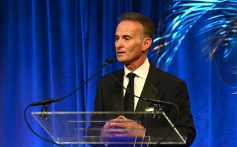
Trending on Billboard
Mike Morris is one of music’s biggest new investors — and he’s placing his bets on the indies. The managing director of Chicago-based private equity firm Flexpoint Ford has overseen what Billboard estimates is more than $375 million of investments in some of music’s most influential independent companies since 2023. After initially backing the front-line music business at Nettwerk, the label that broke Sarah McLachlan and Barenaked Ladies, that same year the firm announced a “significant investment and partnership” in Goldstate Music, the catalog investment firm founded by former BMG president/COO and J Records co-founder Charles Goldstuck. Last year, Flexpoint led a $34 million equity financing round for Duetti, a music investment company that focuses on indie rights, and led a $165 million investment in Create Music, a music distribution, publishing and data analytics company.
Related
Morris, who has previously held positions at Northleaf Capital Partners, H.I.G. Capital and Moelis & Co., says that Flexpoint’s focus on high-return middle-market companies serving independent artists has resulted in “repeated success.”
“We’ve really leaned into the independent sector of the music industry — it is just growing much faster than the traditional majors ecosystem,” Morris says. “This part of the market is so large and fragmented and there is so much growth…and tremendous opportunity for innovation.”
What do you think of the maneuvers by the majors, like Universal Music Group’s proposed acquisition of Downtown Music, that target the growth of the indie segment?
They are evidence enough of the fact they have been losing share to the independent ecosystem. They wouldn’t be buying these companies if it weren’t the case. We think our platform companies — whether one or more of them ends up in a major at some point, we’ll see — can outcompete because they don’t have the legacy infrastructure that some of the majors do. And they can complement the majors in serving this vast, fragmented and growing part of the market.
Related
What are the new modes of monetization you have talked about that excite you?
I’m talking about everything outside of the traditional streaming platforms: Meta, TikTok, YouTube, which is where Create started out. YouTube rights management, if you know how to do it correctly, is a very attractive and important area. Synch placement in video games, fitness apps — all of these tangential revenue streams. Not everyone knows how to monetize those streams, and it is core to the strategy for all of our portfolio companies.
What makes Create special?
Create has only been around for about 12 years. They are a digitally native service and capital provider to the independent sector. It doesn’t have the legacy baggage around infrastructure that some of the services and labels have. Create started out as a pure-play rights management business and then went through a natural evolution, tacking on distribution, accounting systems, publishing — all built on this digitally native background. Their numbers aren’t public, but if they were, they’d speak for themselves.
Duetti was the first, but likely not the last, company to acquire the masters and publishing rights of indie artists bubbling under the mainstream radar. How are they prepped for competition?
This is something [Duetti CEO Lior Tibon] has thought a lot about. They do have a first-mover advantage. But the reason no one else is doing it is because it’s really hard to do. Buying these small catalogs involves a high degree of sophistication, data, AI [artificial intelligence] and operational discipline to acquire thousands of catalogs and thousands of individual tracks. Most music companies and other funds in the space have not set themselves up to do that in a way that’s scalable. More competition is something we’ve planned for at the board level and among the shareholder group and management team. We feel like it’s going to be very hard to replicate the strategy at this kind of scale.
Related
Goldstate Music is more traditional compared with the other companies in your portfolio. What do you like about their method of investing in music intellectual property [IP], and would Flexpoint directly acquire catalogs itself?
Charles Goldstuck is a best-in-class operator who’s proven over decades in and around the music business that he knows how to start businesses, take on institutional capital like ours, identify attractive parts of a market and use capital to create attractive returns for his investors. [He has a] sophisticated, important piece of the strategy: working on them actively to get the most juice out of those assets. Things like changing and optimizing distribution contracts, synch placements, creating remixes and derivative works, getting [name, image and likeness] rights and doing merch and working actively with those artists.
Songs by Xania Monet, an AI artist that Hallwood Media signed to a multimillion-dollar agreement, are climbing the Billboard charts. How could the commercial success of AI music affect the value of catalogs?
It’s fascinating to see AI-powered artists now being signed by labels. Yes, they’ll compete for listening time and could take some share. But in practice, I think it makes high-quality, authentic catalogs and artists even more valuable. So I don’t see AI destroying catalog value. Instead, I see it widening the gap: disposable, machine-made music on one side and enduring, human-driven catalogs on the other. The latter will continue to command attention, cultural relevance and investor confidence.
What are you currently working on?
The most interesting things I’m seeing right now [include] international opportunities in Asia, the Middle East [and Latin America], both on the catalog side and with music service providers. Music-adjacent service providers and IP businesses in music-adjacent spaces like film, TV and video games are heavy users of music. We’re looking at a business in Korea right now that is in some ways like Create. It has evolved organically in the Korean music ecosystem to provide services focused on artists’ and independent labels’ needs.
Related
How long do you plan to be involved with portfolio companies?
We’re not quick-flip investors. We’re not in the quick-hits business. We’re about partnering with entrepreneurs and founders to build enduring businesses that can compound value over a long period of time. We think exits take care of themselves, as long as we’re helping build enduring businesses. Sometimes it takes three years, sometimes five and sometimes 10.
Many companies, including Duetti and Create, are exploring raising funds through issuing asset-backed securities. Why is this a good strategy, and what are the potential drawbacks?
To me, this is just music catching up to what other asset classes have been doing for decades. When you have reasonably predictable cash flow streams, it is a more efficient form of financing — no different from bank financing. But it’s in a more regimented form and checks the boxes the buyers of these types of bonds want. It’s a clear positive for the industry. The only real drawback is it is a significantly bigger undertaking in terms of the documentation and the ratings process than going to a bank and getting a loan. So it does require time, attention and effort from management teams and us.
It’s hard to predict the staying power of songs. Do you have any concerns about very young songs being used to collateralize this type of bond or companies with high loan-to-debt rates adding to their debt this way?
I hear all the same things. The performance of these bonds — both public and the private — has been 100%: no defaults, no issues. But it’s a relatively young asset class in the securitization market. So you might see some folks use the leverage very aggressively, which would be unwise. But I think the buyers of these bonds are sophisticated enough to know what they’re getting into and to analyze these cash flows and to structure them in a way that makes sense. These investors have a lot of experience now in both music and other asset classes where the modeling isn’t very different. It’s all a function of risk/reward tolerance and pricing appropriately.
Source: Jackson State University / Getty
Gucci Mane and his personal transformation have been long documented, but that hasn’t seemed to dilute his creative process and outlook on delivering trap-heavy joints. In a new interview, Gucci Mane talks about apologizing to Drake, his legacy, and much more.
Gucci Mane sat down with the Big Facts podcast and didn’t hold back in the chat. Of course, Big Guwop discussed his personal mental and physical health journey, his career, breaking artists in his hometown of Atlanta, and his new album, Episodes, which dropped on Friday (October 17).
In the course of the chat, Gucci addressed his infamous online rant in 2013, where he dissed several artists, notably Drake. And while Gucci said the Canadian superstar accepted the apology, he did lose some connections in the wake of that explosion.
Love News? Get more! Join the Hip-Hop Wired Newsletter
We care about your data. See our privacy policy.
“A lot of them people, I reach out to and said, ‘Hey, I’m sorry, I’m going through something,’” Gucci Mane said. “Them folks like, ‘I forgive you, Gucci.’ Like, I said some bullsh*t about Drake, text him something crazy. But I was going through an episode, so I kind of had to hit him back and be like, ‘I’m sorry about that. I was going through something.’ And he was like, ‘Man, you know we going to get past that. Brothers go through stuff.”
Gucci explained that some of those connections were irreparable but most of those who were caught in the crossfire have forgiven him.
Speaking of forgiveness, Gucci also explained that he has forgiven Young Thug after the leaked prison phone calls, where the YSL rapper questioned Guwop’s toughness since going free from prison. Gucci says that he has no hard feelings and spoke from a place of understanding. The 1017 Records honcho also spoke about the recently freed Pooh Shiesty, one of the remaining centerpieces of his label.
Check out the Big Facts Gucci Mane episode below.
—
Photo: Getty

Bresh, the “Most Beautiful Party in the World,” is embarking on its most ambitious chapter yet in Ibiza. This weekend, the widely celebrated fiesta kicks off its first Saturday-night residency at Amnesia — the storied venue dubbed the “temple of electronic music.” Running all summer through Sept. 20, this monumental residency sets the stage for Bresh to possibly redefine Ibiza’s nocturnal landscape with its known Latin pulse.
“For us, it’s a source of pride because Ibiza is one of the biggest entertainment platforms in the world —right up there with Las Vegas,” Nicolás Fernández, Bresh’s chief strategy officer, tells Billboard Español. Bresh’s residency at Amnesia isn’t just a milestone for the party itself but also a major turning point for the Spanish island, which has historically been synonymous with electronic music.
Trending on Billboard
This season marks Bresh’s third residency at Amnesia, after previously hosting parties on Tuesdays and then Thursdays. But now, it moves to Saturdays — the most coveted night of the week. “We’re doing something different, something unique — really offering a true alternative to electronic music,” Fernández adds. “[Ibiza] is one of our biggest bets every year. It’s where we bring our ideas to life: the staging, the decorations, the show, the music. It’s one of our main laboratories, where we need to shine the most.”
Since its inception in 2016 in Buenos Aires, Bresh has become a global phenomenon, delivering an unapologetically joyful mix of reggaetón, pop, rock en español, and more Latin rhythms. The residency is designed for an audience of both locals and international visitors eager to dance and connect during its 16-week season.
“You’ve got a big Spanish audience on the island that might be more familiar with Latin music and culture, but you also have Italian, British, German, and Dutch audiences who might not be as familiar,” he says. “It’s both a joy and a huge responsibility to carry the flag and represent [Latin culture].”
Bresh
Courtesy of Fiesta Bresh
Since opening its doors in the 1970s, Amnesia has established itself as one of the most prestigious clubs in the world. Its recognition includes accolades at the International Dance Music Awards (IDMAs) as the best global club in 2007, 2008, 2009 and 2011.
The residency will showcase its essence with a lineup of surprise guests every week, in a format they call Bresh & Friends, Fernández explains. This year, the production comes with a completely revamped design and execution, taking the Latin party experience to another level — something that hasn’t been seen in Bresh’s previous Ibiza residencies.
“We believe that this year the key difference had to be showcasing what happens in many other places — inviting artists and people from the industry to be part of this and doing it together through Bresh as a platform,” he says. “It’s our role to take up this space, but also to be a place where artists with a Latin and Spanish-speaking imprint can show their work. These are artists who, perhaps, don’t often have shows in Ibiza — it’s not very common. Maybe they fill stadiums or massive venues in other cities, but in Ibiza, that doesn’t happen due to the island’s own dynamics. We feel we have to be the space to make this happen.”
Notable figures from Latin music and culture are no strangers to Bresh’s dance floors in Ibiza and beyond. Previous guests include Aitana, Emilia, Lola Índigo, and even sports icons like Lionel Messi and Brazilian soccer star Vinícius Jr. However, the emphasis is not on celebrity appearances but on the collective energy of the crowd and the music. “The focus at Bresh isn’t on who shows up, but on what’s created through the connections,” reads the press release.
This season in Ibiza brings a new addition to the Bresh universe: Casa Bresh. Designed as a space that goes beyond a traditional backstage, this new location aims to become a creative and social hub for artists, collaborators, and friends. “Casa Bresh is the place where these artists will stay and spend a few days experiencing what Ibiza is all about,” Fernández reveals. “It’s a carefully designed and creative environment, meant for connecting, conversing, and celebrating from a different perspective.”
The magic of Bresh has always been its ability to connect people, and Casa Bresh is no exception. Spontaneous moments at these parties have already led to major collaborations, such as Ozuna and Tiago PZK meeting at a Miami edition of the party and later creating the hit “Nos Comemos” in 2022, which made its way onto several Billboard charts, including Latin Rhythm Airplay at No. 16.
With over one million attendees each year across more than 30 countries, 190 cities, and four continents, Bresh continues to solidify its status as a global phenomenon. But its Ibiza residency carries a special mission. “”From the very first day we arrived, the goal was clear: ‘We need to be here forever.’”
“We believe we’re here to embody everything that aligns directly with Bresh’s values,” Fernández says. “The essence of Bresh is to make people happy, bring joy, dancing, and great energy to everyone.”
Sharay “Pun” Hayes, an author and exotic male dancer, recently took the stand in the Sean “Diddy” Combs sex trafficking and racketeering trial. In a new interview with Cam’Ron, Hayes shared that for a full year, he didn’t know he was engaging in so-called “freak-offs” with Diddy and then-girlfriend Cassie.
Hayes joined Cam’Ron’s Talk With Flee program to discuss his past encounters with Diddy, including joining the beleaguered mogul and his former girlfriend as a third sexual partner in paid, scheduled meetups.
The interview opens with Cam’Ron and Hayes reminiscing on their Harlem upbringing and playing basketball during high school, although the pair weren’t directly familiar with one another. The conversation then steered into how Hayes got into exotic dancing and how he first made contact with Combs and Ventura.
“They just called up like they was just hiring [for] a regular party”, Hayes began, adding that Ventura gave him a fake name to book the session. He added that Ventura stated to him that her husband, presumably referring to Combs, was endorsing her to hire a dancer for a birthday party and was paid just $200 at the time.
What was striking about Hayes’ account is that as he was booked for subsequent performances and shared, as he did from the witness stand, that Diddy and Cassie masked their identity, but that he discovered who they were by accident after a hotel TV displayed Combs’ full name. With the disguise seemingly busted, Hayes said that Combs ditched the veils.
Cam’Ron bluntly asked Hayes how sex was with Ventura, but he explained that it was difficult for him to get into the mix with Combs in the room and directing the scene as it were.
“Bro, I’m a be honest with you man, I couldn’t get there,” Hayes shared, trying not to delve too much despite Cam’Ron’s urging to be explicit. “Like I got a dude pacing back and forth, beating his joint. “My peripherals, my Spidey-senses is wilding, especially when I found out it was Puff. When I found it was Puff, it got all the way worse because if you grew up in Harlem, if you grew up in that era, I can’t validate it, but everybody knows there’s rumors, right, that he could be interested in dudes.”
Hop to the 22:05 mark of the video below to hear Sharay “Pun” Hayes detail his time as a hired sex worker for Diddy’s “freak-offs” below.
—
Photo: Screenshot / Youtube
HipHopWired Featured Video

 State Champ Radio
State Champ Radio 
